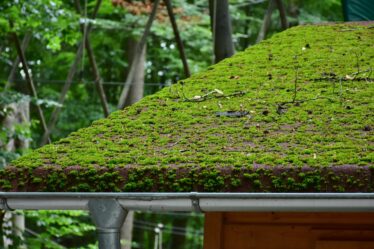
To maintain a healthy septic system, a homeowner should regularly pump their tank and have it inspected. The technician will check the tank levels and drain field areas for wet spots, odors, and surfacing sewage. Some systems may require more frequent inspections depending on state regulations. Additionally, the tank should be pumped annually when the scum is 3” or more from the outlet device.
Avoiding flushing grease down the toilet
When it comes to maintaining your septic system, it is essential to avoid flushing grease and other foodstuffs down the toilet. These items can harm your septic system, clog pipes, and take up tank space. Not only will these items cause your septic system to suffer, but they will also cost you a lot of money to clean. However, by learning how to maintain your septic system correctly, you can ensure that it will be in tip-top shape for years to come.
In addition to cooking grease, you must avoid flushing other fats and oils down the toilet. Not only does grease damage the plumbing system, but it also contains harmful chemicals. For example, paint, unwanted solvents, and other chemicals should never go down the drain because they can cause pipe damage and clog. Finally, do not flush cigarette butts or other tobacco products down the toilet. These items contain toxins, carcinogens, and other harmful chemicals that can harm your septic system. When maintaining your septic system, make sure to flush water down the drain as well. Doing this will prevent clogging and help your septic tank Orlando, FL work more efficiently. You can also use a drain snake to unclog the drain. If you must, use boiling water instead of chemical drain openers, and do not put cooking oil down the drain.
Pumping septic tank every three years
Pumping your septic tank is vital to owning a septic system, but most homeowners only need to do it annually. It is a relatively simple process and requires very little mess. First, you need to locate and remove the lid from your tank. The top should be removed with great care, as it can crack. Another reason to pump your septic tank is that your house has a garbage grinder. The food waste that goes down the garbage grinder reduces the capacity of your septic tank. When this happens, you have to pump the tank more often. Also, trees within 30 feet of your septic tank can block the pipes, and heavy vehicles can cause the drain field to collapse. Pumping your septic tank is relatively inexpensive, but failure to perform regular maintenance can be. The cost of pumping your septic tank depends on how much wastewater you produce and how many people live in your household.
Protecting the area around the septic tank
Protecting the area surrounding the septic tank is essential to keeping your septic system in top condition. This includes maintaining grass growth to a minimum and not watering or burning the area. It is also important not to place any structures over the site, such as decks, hot tubs, or playground structures. You should also make sure that you limit the use of cleaning agents. These products can damage the septic system by killing good bacteria. For example, you should never flush bleach or large volumes of toxic cleaners down the drain.
Furthermore, never use antibacterial soaps or disinfectants that contain quaternary ammonia. Protecting the area around the septic system is essential for many reasons. First, diverting stormwater from the system is vital, and keeping the soil around the septic tank slightly mound is critical. This will prevent water from sitting around the septic system during heavy rains. Moreover, preventing water from entering the septic system can help prolong its life and reduce the risk of system failure. Furthermore, it would be best if you also avoided building near the septic tank, as it may disrupt the proper functioning of the septic system.
Avoiding clogging the drain field
One of the best ways to keep a septic system in good condition is to avoid clogging the drain field. A clogged drain field can lead to expensive repair or replacement of the drain field. A household detergent not containing phosphates is a great way to prevent clogging the drain field. In addition, this detergent will prevent algae growth, damaging your septic system. Using phosphate-free detergent will also protect the environment. To prevent clogging, you should keep your drain field free of debris. Avoid watering plants and trees close to the drain field. Tree roots can penetrate the pipes and clog them. Also, you should avoid planting trees within 25 feet of the drain field. These trees may get into your septic tank and distribution box. You should also plant grass over the outdoor system components. This will help to keep water from pooling and prevent soil erosion. Most septic systems require that you set aside an area for potential repairs.



